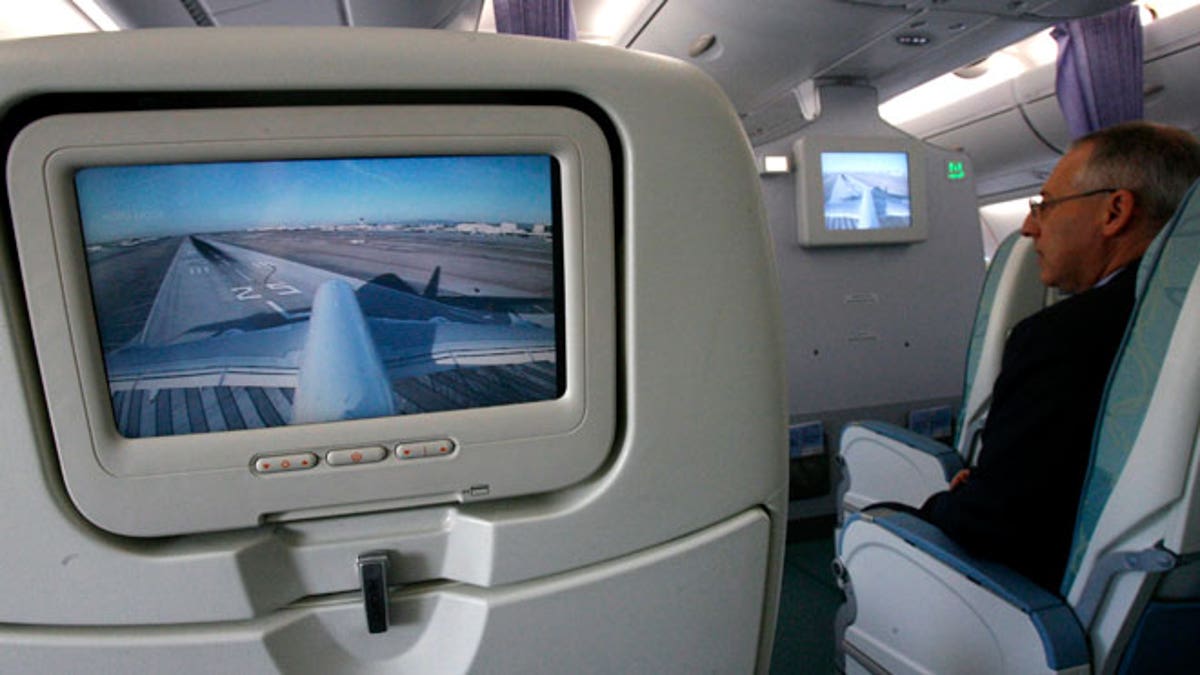
(Reuters)
One month's data may hardly be enough to establish a long-term trend, but one aviation industry group says August’s bleak premium travel figures for the airlines only add to its growing fears about the downward spiral of the sector.
The number of airline passengers flying on premium seats, which typically are made up largely of business travelers, fell steeply in August, according to a report released earlier this week by the International Air Transport Association.
First-class tickets grew just 2.3% from the year-earlier period and were down sharply from 7.5% in July. The final month of summer brought significant economic problems, including a debt debacle that stretched on in both the U.S. and Europe, and renewed fears over a double-dip recession.
Growth in premium travel has now fallen back to year-ago fourth-quarter levels after rising sharply this summer, and the decline was sharper than economy-class travel’s decrease during the same period.
Since business travel is directly related to corporate profits, airlines are dependent on the overall health of the business environment. Losing those premium travelers could prove to be a huge hit to carriers’ corporate profits.
“Forward-looking indicators for air travel, particularly travel on business, continue to point to a further slowdown in the months ahead,” the IATA said. “This weak level of business confidence is usually consistent with little or no growth in premium travel volumes.”
The latest figures add to worsening sentiment swirling around the airline industry as U.S. airline majors such as AMR’s (NYSE:AMR) American Airlines, Delta (NYSE:DAL) and UnitedContinental (NYSE:UAL) struggle to keep up with rising fuel costs and thinning demand.
The group has been predicting for some time now that airlines will likely face a decline in profitability heading into 2012, with total industry profits falling to $4.9 billion from $6.9 billion this year.
The decrease in passenger economy travel has been a problem for airlines over the last decade, but the slowdown in corporate premium travel poses a new headache for carriers that has the potential to cause even more damage.
“It is always hazardous to announce the start of a new trend on one month’s data, but the decline in August is consistent with what we had been expecting for several months, based on the fall of world trade and the decline in business confidence,” the IATA said.
After all, passenger tickets now account for just 71% of U.S. airlines' total passenger revenue, down about 17 percentage points from 1990, according to the Department of Transportation, and profits from business travelers typically make up a majority of that.
Indeed, a report from UBS showed that airline tickets used by corporate travelers have been steadily increasing, including a 4% year-over-year gain in September. But that’s mostly because of dwindling consumer confidence that has pushed regular passenger tickets even lower. The UBS analysts said they expect airline revenue trends to decelerate.
Airlines have noted the latest threats and many have already started to revamp their packages to corporate travelers in an effort to appear more attractive than rivals. American Airlines, for example, announced on Tuesday an extension of its frequent flyer agreement with Abu Dhabi-based national airline Etihad Airways, which is a major hub for businesses.
Maya Leibman, president of American’s AAdvantage Loyalty Program, said the expanded relationship, which allows passenger the opportunity to redeem frequent flyer miles on flights booked on each other’s networks, gives customers “even more options” as well as “more travel choices to cities in the Middle East.”
The announcement came a day before American announced a loss of 48 cents a share from a year ago profit, and a week after the company said it would cut winter capacity by 3%. The company, which had to fight off bankruptcy rumors last quarter, said on Wednesday that it is striking strategic alliances as part of its turnaround efforts.
While there was a significant rebound in travel after the recession officially ended last year, the IATA noted there has “clearly been a structural shift, due to the severity of the recession, away from travel on business and first class seats towards economy.”
Before the economy tanked two years ago, premium travel made up 9-10% of total international air travel. That has fallen to about 7.5-8.5% in the latest periods, and the new cyclical downturn is only placing more pressure on companies to cut costs.
August's most significant first-class drops were in the European and North Atlantic markets, which the IATA says is a reflection of the “deterioration in economic conditions in this part of the world,” as those regions used to be one of the strongest for air travel.
Eurozone headwinds continue to inflict negative sentiment on consumers and businesses there, and the region saw premium travel to Asia slow to 7.5% in August from 13.5% in July. Within Europe, first-class travel growth actually moved backwards, at a pace of -1%, compared with a solid 5.6% gain the month earlier.
Travel to Asia, however, continues to be robust as those emerging markets become more attractive to foreign businesses. Highlighting the increased economic interest Asian markets, premium travel growth within the Far East was up 12.5% in August, which is even higher than an increase of 10.9% in July.
First-class travel to the Far East from the U.S. also grew modestly and showed little sign of any slowdown, according to the IATA. However, travel on the spacious leather seats within the U.S. dropped 13.2%, which is on top of a 9.7% decline in July.
Keep up with the latest travel news on the FOX Business Travel Facebook page.
